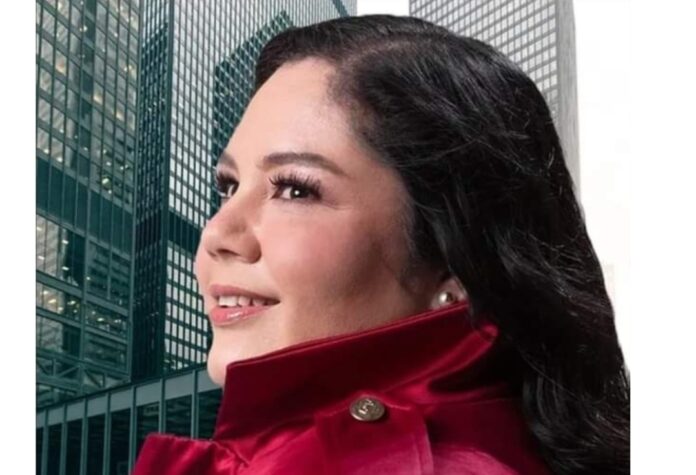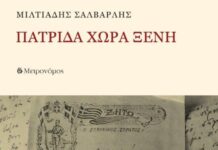Επιμέλεια: Εύα Πετροπούλου Λιανού
In the present era when wars ravage the veins of our civilization, and almost force us to acknowledge the deep crisis we are in, contradictorily, Dr Jeanette Eureka Tiburcio’s “Golden Child” (2024) poem (https://www.polismagazino.gr/poem-by-jeanette-eureka-tiburcio-from-mexico/) owing to its tremendous positivism and hope, inspires one to repose faith in humanity once more. ‘Golden Child’ is defined as “One who is favored or the favorite (in a family, or a team), often held in high esteem by others, and for whom there are high hopes”(https://www.yourdictionary.com). Theresa Lupcho thinks that “Being a ‘Golden Child’ is stressful and draining, causing a range of negative effects for the child. Golden child syndrome, or being a ‘golden child’ is a term typically used by family, and most often by parents, to refer to a child in the family who is regarded as exceptional. The golden child is expected to be extraordinary at everything, not make mistakes, and essentially be ‘perfect.’ This idea of the parent or parents’ love being conditional on them doing what’s expected might be felt subliminally or stated outright, but it is nonetheless understood by the golden child” (https:/thriveworks.com). Wendy James’ novel, The Golden Child (2018) deals with the two families’ painful realization that there couldn’t be any assurance and certainties when the matter concerned is parenting. However, here the author has selected quite a few “Golden Child” poems, beginning from 2003 till recent times with two specific objectives. First, the author wants to compare and contrast Dr Tiburcio’s poem that strikes one for its surprisingly unique faith in humankind, with contemporary poems bearing the same title. Next, the author wishes to study if any change visits the idea of ‘golden child’ as manifest in contemporary English poetry.

Dr Tiburcio calls her brethren as ‘golden child’ who “on the dark red of the earth” mark their tracks “In weakness and uncertainty.” The poem embodies the echoes of war, symbolic of our disturbed times. “Barren roads, disturbed and flooded/Of the vile nature of the one who has decided to steal everything from you.” Yet the poet doesn’t lose hope in mankind. Rather she prays for the humankind so that they might retain their self-confidence, the capacities, ‘to dream, to grow.’ The poet prays for rain to caress our feet and thereby multiply our ‘bonanzas.’ When the poet says: “Let the rain irrigate you hope/ to build your story and build,” the image strikes one for its freshness and unique beauty. The poet apologizes for “the damage done to the earth” by her ancestors, for “they watered the crop,” an act that only speaks of her immense confidence in the present generation. She doesn’t want either to “erase the past or to ‘exchange’ life.” Her message is never “to give up.” The poet wants to ‘inherit’ the ‘resistance and resilience’ of all while inviting us not to give up in the face of crisis. The poem attains different dimensions altogether when the poet offers us her voice, her passion for life and promises to fight ‘uncertainty’ by activating ‘awareness and decision,’ thereby impacting ‘transformative leadership.’ That the poet doesn’t live in a world of illusion is evident in her acceptance of human frailties, she writes: “natural imbalance is our reality.” The poem ends with a clarion call to bring to an end all such actions as lead to ‘deterioration and devastation.’ The poet’s point of view is implicit. If we ‘write, paint and dance’, in other words, do whatever is possible to give to this world which it deserves, we must emerge as His golden children. Thus, the poem ends on an emphatic and gentle reminder about what the ‘golden child’ needs to do to maintain his image of perfection, and save this earth.
Alicia Key’s “Golden Child” (https://genius.com/Alicia-keys-golden-child-lyrics) is a track recorded in 2003 during the sessions of her sophomore album “The Diary of Alicia Keys.” Her “Golden Child” lyrics are tremendously confidence boosting and full of hope. The focus is on lack of self-knowledge and a plea to a girl to look into her heart to know the power and beauty that reside in her as she is the ‘golden child.’ In his poem “Golden Child” (2006) (http://www.poemhunter.com/poem/golden-child/) Max Reif speaks of his mother’s confidence in her son that prompts him to become a golden child someday. “He had to be someone great,” reflects the burden of ‘golden child’ syndrome. Asherah’s “The Golden Child” (2011) (https://allpoetry.com>poem) is sad, personalized account of unrequited love. Here the golden child is one who has beauty, charm and good fortune, one who is the “Beloved and cherished, sweet and wild.” Edward Kofi Louis’ very short poem, The “Golden Child” (2014) (https://www. poemhunter.com/poem/the-golden-child/), urges to maintain peace and “positive attitude.” B. Nnyla’s “Golden Child” (2015 ) https://powerpoetry.org/poems/golden-child) is once again a personalized probing into one’s own self. It is actually a ‘ME’ poem written in the mode of “acceptance of self” even its darker aspects. Nahnah Najeeb’s “The Golden Child” (2021) (Moiramor, Facebook) is a mystical poem that speaks of the birth of a ‘the golden child’ who “came, rising for the throne,/a mere flesh but an aching divine”. The poet imagines that “tearing down walls of blood” “so that you could unfold your story before the universe.” In Persephone Dagenhart’s “Golden Child” (2021) (https://hellopoetry.com/poem/4301355/golden-child/), the neglected, dominated, hated wife is the speaker, the unrealized, unrewarded golden child who finally gathers courage and decides to walk away from her husband as she “always wanted more.” Emily Jackson’s poem, “Golden Child” (2021) (https://allpoetry.com/poem/16277632-Golden-Child-by-Emily-Jackson1), is written in the same vein; herein the ex-wife ironically speaks about herself as “petty golden child,” “a fool’s gold child” whose sufferings, frustration and the agony are the stuff of the poem.
In the light of alluded poems on “Golden Child,” it can be safely inferred that Dr Tiburcio’s poem is not about an individual’s account of sadness, grief or complaint. It is vibrant with universal appeal sans the signs of hopelessness or frustration. Her poem has some parallels with a few poets discussed in so far as positive and resilient attitudes are concerned. In an excellent exposition she reminds the present generation of its responsibilities to build the civilization against the backdrop of the heinous indiscretions of the previous generations. The poets of 2020s use the term “golden child” in a metaphorical manner though Dr Tiburcio uses it with its traditional connotations. Conventionally, our saviours and those whom we know as our greatest personalities, are referred to as our golden children. But Dr Jeanette uses the term in a broader sense to signify humanity at large. Her unfaltering faith in her comrades doesn’t pressurize but inspires us to become His ‘golden children.’ The sheer force of her passion and commitment to usher in a new world elevate Dr Tiburcio to the level of a messiah of love and peace in the embattled world.
Works Cited
Asherah. (February, 2011). “The Golden Child” https://allpoetry.com>poem
Dagenhart, P. (2021). “Golden Child” https://hellopoetry.com/poem/4301355/golden-child/
Jackson, E. (2021). “Golden Child” https://allpoetry.com/poem/16277632-Golden-Child-by-Emily-Jackson1
“Golden Child definition and meaning”. https://www.yourdictionary.com
James, W. The Golden Child. (2018). Skyhorse, 2nd October.
Key, A.(2003). “Golden Child” https://genius.com/Alicia-keys-golden-child-lyrics.
Louis, E. K. (2014). “Golden Child” https://www.poemhunter.com/poem/the-golden-child/
Lupcho, T.(31st March , 2023). ” Golden child syndrome: How does it develop, and what effect does it have? ” https:/thriveworks.com.
Nahnah N. (2021). “The Golden Child” Moiramor, Facebook.
Nnyla, B. (3rd March, 2015). “Golden Child” https://powerpoetry.org/poems/golden-child
Reif,M.(2006) https://www.poemhunter.com/poem/golden-child/
Tiburcio, J. E. (2024). “Golden Child” https://www.polismagazino.gr/poem-by-jeanette-eureka-tiburcio-from-mexico/

































